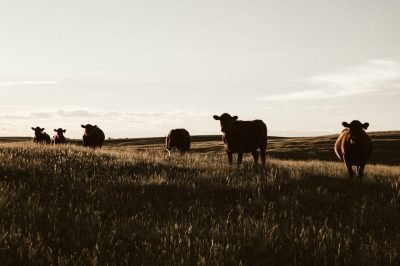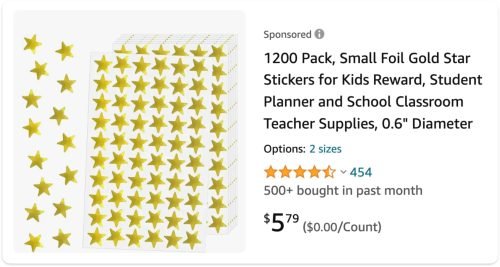
Rancher owns livestock. Rancher sets the bound. Rancher decides what food it consumes. Rancher decides when to kill or let live. Rancher possesses the power over their existence. Rancher’s intentions are minimally comprehensible to livestock. Rancher opens the door, then livestock exits the barn and grazes. Rancher whips, then livestock moves faster. Everything else is over their heads. “I have to deliver ten thousand patties to wholesaler Dick by next Tuesday. That’s one hundred cattle, leaving me with fifty thousand. I have raised them for about 18months. Total cost per cow was around $1,000. That brings the margin to x%. Now, time for some whiskey.” The cattle has no idea.
You may feel sympathy towards livestock. In sight of tragedy too hard to process we often exhibit a behavior to face the other way, to ignore. When worlds or values collide, we won’t struggle to harmonize the two on all occasions. Inconvenient truths are truly inconvenient. We all know how chicken nuggets are made. But that doesn’t mean we won’t drool over the thought of a meal from McDonald’s. We sometimes feel sorry. But we gotta have our nuggets. For the most part, we turn off that part of the brain, so that we don’t even need to feel sorry. I’m not a douchebag, I just happened to forget.

By rancher I meant Nature, and by livestock I meant us, humans. Our destinies are predetermined by Nature. Nature sets the bound. Nature decides when to kill or let live. Nature breathes pressure over our existence. We cannot comprehend Nature. We attempt to. By we, I mean primarily physicists, could include religions too. Humans are all pre-determined for a definitive game-over moment. That might be the most inconvenient truth ever. Although it is one that we are forced to revisit, since it pertains to us, not like the lives of the chickens. As much as we stick our heads in sand when eating chicken nuggets, we also stick our heads in the sand in the presence of an existential question. What’s the predator here? In the former, it’s that corner of consciousness preaching the inherent value of all living organism. In the latter it’s the insurmountable sense of futility. Reactions would be similar too. The faces of customers if a video of how patties are made were to randomly playing at McDonald’s would be similar to the expressions of people if you were to say something depressing about life at a bar. Life is a kinky intercourse. Sometimes you take the role of the oppressive, the one with the whip. Sometimes you switch sides and take the role of the submissive, on four legs.

Chapter 1 exudes eeriness when revisited after finishing the book. First time around, I was busy taking in information about this fictional world. Donor, carer, donation, Hailsham. Second time around, I noticed that Kathy’s scope of thought is notably different from adults that I normally see, right from the first sentence of the book. “My name is Kathy H. I’m thirty-one years old, and I’ve been a carer now for over eleven years.” Adults I’ve seen rarely start their introduction with age. I mean sure, one could have only had the faintest question mark, giving it a pass. After all it’s only the first sentence of the entire book. Maybe the author simply wanted to drop pieces of information here and there. Well, that’s not what I think. Finishing the book in its entirety gave me the impression that Kazuo Ishiguro trusts his readers. He is far from the nagging parents who would ask their children if they haven’t forgot to pack their lunch for the fifth time in the morning. He would only say it once, subtly, perhaps packaged within some other statement. Like, he wouldn’t blurt out “HAVE YOU PACKED YOUR LUNCH??? HONEY??? HAVE YOU PACKED YOUR LUNCH???!!!” from downstairs. “Hope you enjoy what I put in for dessert for today.” while zipping up her jacket, crouched down, just before leaving the door, is the version he would opt for, I believe. You can see how this statement essentially contains the former. If she forgot to pack, she would have been reminded just as effectively. See, also, if it were Ishiguro that wrote this review, he would have excluded the previous two sentences, since he believes that the readers can get it without the explanation. I believe the introduction starting with age is no coincidence. It is the outcome of Kathy only being allowed very limited education as well as social experience. It is usually a trait of children, whose minds are not fully developed yet and spend most of their time in school where age corresponds to grade. The remainder of chapter 1 is also dedicated to showing how ingrained and subservient she is to the system, which reminds me of the gold star sticker board attached to the wall of the classroom. She seemed like an adult that is still chasing gold star stickers. What is wrong with her?

Tommy: ‘But is it really that important? Okay, it’s really nice to have a good carer. But in the end, is it really so important? The donors will all donate, just the same, and then they’ll complete.’
Kathy: ’Of course it’s important. A good carer makes a big difference to what a donor’s life’s actually like.’
– page 276
I remember the first time I walked into a trophy store — a store that sells trophies. They would have trophies for everything, in all shapes and sizes, alleys and alleys and floor to ceiling shelves full of the prestigious object. After a brief awe, I got worried. What if some talentless kid just got some of these and displayed it? Simultaneously, all the trophies on my bookshelf got a bit lighter. It seemed synthetic, quite useless and artificial. I had a similar experience in university where I realized that all grades and awards up to that point did not have inherent value, except the brief morale boost, which already faded away. Why did I want to get that gold star sticker so badly?
I guess a prize becomes valuable when you thoroughly enjoyed the journey, and the end point happened to coincide with the award scheme. Another case is if you deem the people among which the prestige of the prize is shared to be important in your life. I guess I did enjoy the journey for some of them. Although there is a chance I am hastily bestowing greater personal meaning to salvage some of the trophies out of the water. Some though, it was clear because I wanted it because others thought it had value. Now that I am older and the board for the gold stars is long gone from the wall, to people outside of that classroom, let alone the fellow graduates, the prestige is not shared anymore. A part of me felt tricked.

I had an ick towards Kathy. For not being able to revolt against the system, to be unable to see beyond the system and desire it. Imagine a grown adult still chasing the childhood kindergarten teacher, running errands to get more gold star stickers. Quite apparently he would seem a little unhinged. But is he? In the spirit of ‘let him who is without sin cast the first stone’, who then, is so “hinged” to call a pursuit unhinged? When does a gold star sticker transcend a gold star sticker? Perhaps the equivalent of the clones to be able to see beyond the system, question it, and have a desire for it is for humanity to comprehend Nature and overcome it, a near-impossible goal.
Leavening through unhinging is a unique approach from Ishiguro. By making us feel futility in Kathy, Tommy and Ruth’s endeavors, he alludes to the question, “What, then, is not futile?”. Aren’t we all, to some extent, ostriches, sticking our heads in sand, consciously and unconsciously dismissing the daunting presence of something incomprehensibly bigger, each looking for whatever it is that is the gold star for themselves. I wonder if I get older and wiser, I will no longer feel any rage nor ick towards Kathy, but just a very neutral, dispassionate acceptance, aside from the sympathy that arises from them having equal potential as I, but being on the serving end — a sympathy that could be represented by a combination of the sympathy that I have for malnourished children in third world nations and the sympathy I have for cattle.
 The moon wasn’t quite full, but it was bright enough, and I could make out in the mid-distance, near where the field began to fall away, Tommy’s figure, raging, shouting, flinging his fist, and kicking out. … then I reached for his flailing arms and held on tight. He tried to shake me off, but I kept holding on, until he stopped shouting, and I felt the fight go out of him. … ‘Good job there weren’t cows in the field. They’d have got a fright.’
The moon wasn’t quite full, but it was bright enough, and I could make out in the mid-distance, near where the field began to fall away, Tommy’s figure, raging, shouting, flinging his fist, and kicking out. … then I reached for his flailing arms and held on tight. He tried to shake me off, but I kept holding on, until he stopped shouting, and I felt the fight go out of him. … ‘Good job there weren’t cows in the field. They’d have got a fright.’
– page 269
Written from scratch by Meston Ecoa
No assistance was received from any form of Artificial Intelligence.
No assistance was received from any grammar or vocabulary enhancing software.
Source
Photos
• Book cover photo: shot myself
• Cattle photo: Photo by Priscilla Du Preez 🇨🇦 on Unsplash
• Chicken nugget photo: Shutterstock
• Head in sand photo: Shutterstock
• Gold star photo: Amazon
Quotes
• Excerpts from Never Let Me Go

